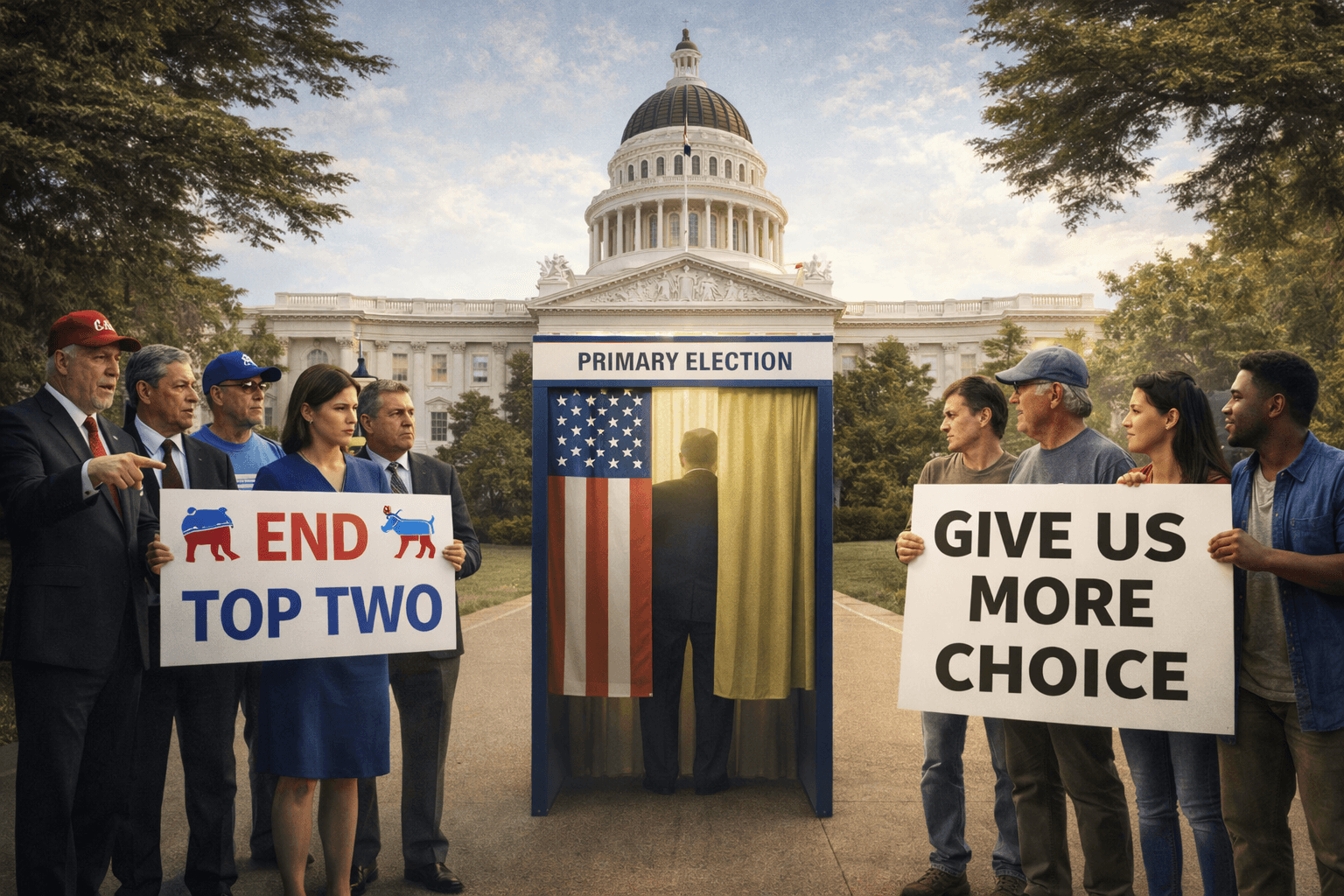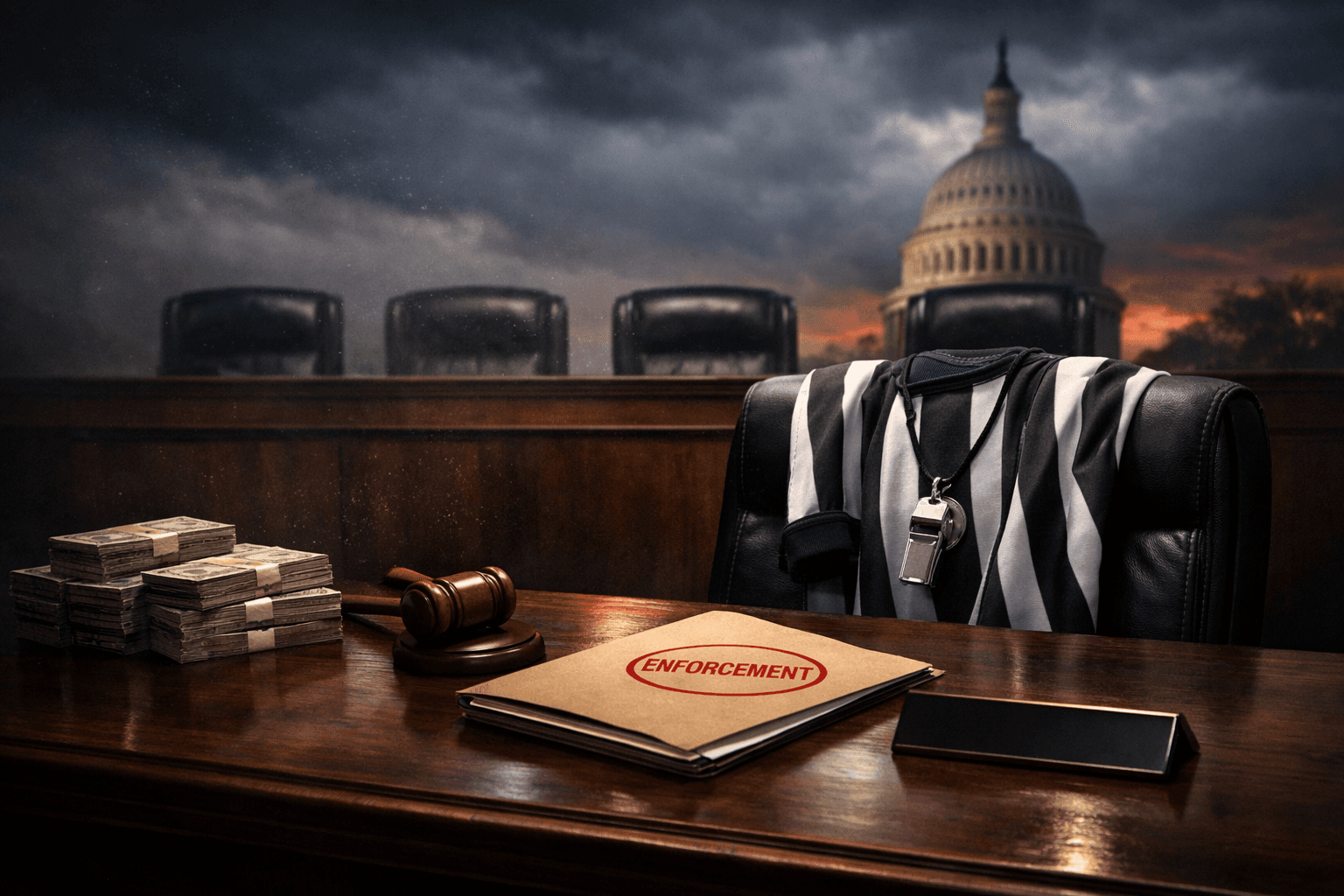Question 3: Will Nevada Once Again Vote for More Choice in Elections?

Photo Credit: Getty Images / Unsplash
In 2022, a majority of Nevada voters said 'Yes' to a ballot measure that would open up primaries to all voters and candidates and implement ranked choice voting in the general election. The question is: Will they do it again in 2024?
Question 3 will be on the November 5 ballot. If approved, it would have the following impact on state elections.
First, it replaces the state's closed partisan primary system with an open nonpartisan top five system in which all voters and candidates participate on a single primary ballot. The top five vote-getters advance to the general election.
Participation in a nonpartisan primary does not place limitations on a voter based on party registration. Any eligible and registered voter can participate, and they can vote for whomever they want.
Because like with voters, these elections are open to any candidate who qualifies for the ballot, regardless of party.
It is a stark contrast to the taxpayer-funded primary system used in Nevada. The state uses closed partisan primaries that restrict access to members of the Republican and Democratic Parties.
Notably, the largest voting bloc in Nevada is not Republican or Democrat. It is independent/unaffiliated and other voters not registered with either of the two major parties.
These voters are barred from a critical stage of the elections process, paid for by taxpayers, unless they register with a party, and then their choices on the ballot are limited to the candidates of that party.
"Yes on 3," the campaign spearheading Question 3, asserts on its website that "all registered voters should have the right to vote in all taxpayer-funded elections."
The campaign has largely focused its messaging on the one million Nevada voters who cannot participate in the primaries because they choose not to affiliate with the Republican or Democratic Parties.
The number is taken from adding registered unaffiliated/independent voters (who outnumber members of both major parties) with voters registered with a third party or "other."
The second thing Question 3 does is it implements ranked choice voting in the general election to ensure that in a 5-person contest, a candidate does not win with less than a majority of the vote.
Instead of bubbling in a single choice among 5 candidates in the general election, voters can rank candidates in order of preference (1st choice, 2nd choice, all the way to 5th choice).
"Yes on 3" released a video to explain how its system, colloquially known as Final Five, works:
Opposition to Question 3 focuses on ranked choice voting -- a common theme with statewide measures that combine primary and voting reform across the US in the 2024 cycle.
Planned Parenthood Votes Nevada Executive Director Lindsey Harmon recently called ranked choice voting "a risky system to enshrine into [Nevada's} constitution without more robust testing."
She added that this testing doesn't exist.
Ranked choice voting (RCV) is used in 50 jurisdictions across the US, including two states (Maine and Alaska), 3 counties, and 45 cities. Some of these RCV systems go back decades.
Opponents also point to the risk of voter confusion, citing studies that suggest human error on ballots has the potential of being higher compared to a standard choose-one method.
A report from McKinley Research Group in April 2023, following Alaska's first use of Top 4 with RCV, found that 85% of voters in the statewide special election found the RCV process at least somewhat simple.
This leaves 15% of voters who found the process at least somewhat confusing after first use.
Harmon pointed to a University of Pennsylvania study that found that in RCV races in Maine, San Francisco, New York City, and Alaska, 1 in 20 ballots were marked incorrectly in some way.
However, she falsely claims that these were ballot rejections. In fact, the study found that rejection dropped to 0.35% in the first round of tabulation, and could increase to 0.53% in the final round of tabulation if an instant runoff kicks in.
These types of figures are not uncommon when new voting systems are implemented or expanded.
For example, 1.5% of all absentee/mail-in ballots in 2022 were rejected in the US due to some form of human or administrative error. Nevada's rejection rate fell between 1 and 2 percent.
This does not include the number of absentee ballots that were marked or dated incorrectly, missing a signature, featured overvoting, or included another type of error that were then allowed to be "cured."
The use of mail ballots expanded during and following the COVID-19 pandemic, meaning many voters used mail ballots for the first time in 2020 and 2022.
This does not, however, speak for or against the benefits of the accessibility that mail-in voting provides. Human error occurs even under a choose-one voting system.
Advocates of RCV point to a need to ensure a majority winner in elections when more than two candidates are on the ballot, which they say RCV does without the added cost and lower turnout of a runoff election.
Nevada voters approved Question 3 in 2022 with 53% of the vote. The results reflected polling up to the election. A Suffolk University poll in August 2022 had support at 51.6%.
A month prior, OH Predictive Insights found support at 42% -- suggesting that when more voters learned about the initiative, they supported it. There is, however, no polling in 2024 to show where support is at going into November.
Nevada law requires changes to the state constitution -- like the changes Question 3 makes -- to be approved by voters in two consecutive election cycles, which is why Question 3 is on the 2024 ballot as well.
The measure will be on the November 5 ballot. Early voting begins on Saturday, October 19, and lasts until Friday, November 1. Question 3 is one of six state ballot measures in the US calling for an open nonpartisan primary system.
 Shawn Griffiths
Shawn Griffiths







